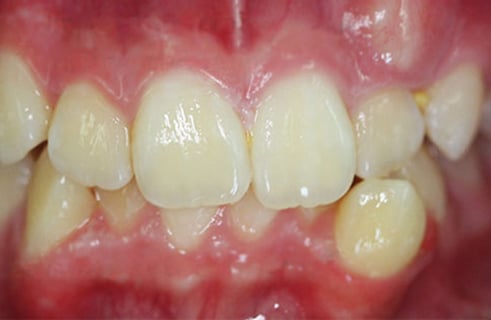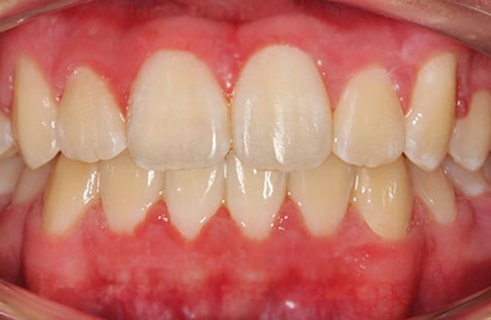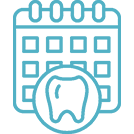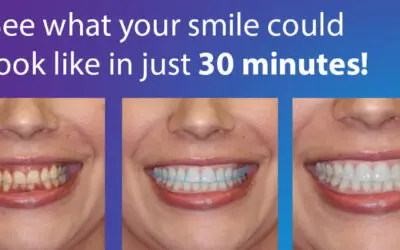Teledentistry is revolutionizing dental care, making it more accessible and convenient through virtual consultations, AI-driven diagnostics, and remote monitoring. This technology-driven approach is improving patient engagement, reducing costs, and expanding access—especially for underserved communities. Learn how DeJesus Dental Group is keeping up with the progress of teledentistry dentistry in Bridgeport and Shelton, CT.
Regular cleanings and oral hygiene are your smile’s best defense, ensuring health and confidence.
Experience you can trust
Compassion you can feel
Outcomes you can expect
Sleep apnea diagnosis and treatment in Bridgeport/Trumbull and Shelton
By consulting a sleep apnea dentist, you can receive expert guidance and specialized treatment options tailored to effectively manage your sleep apnea and restore restful nights.
In diagnosing and treating sleep apnea, you embark on a journey to regain restful nights and rejuvenating sleep. Through a comprehensive evaluation which can be done by a sleep apnea dentist, or for further evaluations like sleep studies and clinical assessments, you gain insights into the underlying causes of your sleep apnea.
With tailored treatment options such as continuous positive airway pressure (CPAP) therapy, oral appliances, or lifestyle modifications, you regain control over your sleep and wake up refreshed, ready to embrace each new day with vitality.
Seeing is Believing


A better night's sleep is just one decision away.

Make an appointment
You may call (203) 378-9737 for Shelton or (203) 372-1220 for our Bridgeport/Trumbull Office.
Begin a Quest for Better Sleep
Improve your sleep quality with our personalized sleep apnea diagnosis.
Breathe Easier at Night
The new norm will be to wake up rejuvenated and ready to tackle the day.
Stay Connected!
Subscribe to our email list to stay up to date with out latest news and offerings
Bridgeport Location Sign Up

Shelton Location Sign Up
Sleep apnea is a sleep disorder characterized by pauses in breathing during sleep, often accompanied by loud snoring and daytime fatigue. These pauses, called apneas, can lead to fragmented sleep and decreased oxygen levels in the body. Sleep apnea can impact both physical and mental health, highlighting the importance of timely diagnosis and appropriate treatment for improved sleep quality and overall wellness.
Common symptoms of sleep apnea include loud and chronic snoring, episodes of breathing pauses during sleep witnessed by others, excessive daytime sleepiness, morning headaches, difficulty concentrating, irritability, and restless sleep. Other signs may include waking up with a dry mouth or sore throat, gasping or choking during sleep, frequent nocturnal awakenings, and experiencing mood changes or depression. It is important to consult a healthcare professional for proper evaluation and diagnosis if you suspect you may have sleep apnea.
Treatment of sleep apnea typically involves a multi-faceted approach tailored to individual needs. This may include lifestyle modifications like weight loss and positional therapy, the use of oral appliances to keep the airway open during sleep, and the application of continuous positive airway pressure (CPAP) therapy to deliver a steady flow of air pressure to keep the airway open. Surgical interventions may also be considered in certain cases. Consulting with a healthcare professional is essential to determine the most appropriate treatment plan for managing sleep apnea effectively.
Untreated sleep apnea can have various detrimental effects on both physical and mental health. It can lead to excessive daytime sleepiness, which can impact daily functioning, concentration, and productivity. Untreated sleep apnea is associated with an increased risk of high blood pressure, heart disease, stroke, diabetes, and obesity. It can also contribute to mood disorders, such as depression and anxiety, and can negatively affect overall quality of life and well-being. Seeking timely treatment is crucial to mitigate these potential long-term consequences.
Schedule Your Next Visit with
DeJesus Dental Group
FAQs
What are the common signs of sleep apnea that might necessitate treatment?
Common signs include loud snoring, abrupt awakenings accompanied by gasping or choking, morning headaches, daytime sleepiness, and observed pauses in breathing during sleep.
What treatments are available for sleep apnea?
Treatments range from lifestyle changes and CPAP machines to dental appliances that adjust the position of the jaw and tongue during sleep, and, in severe cases, surgical options.
How does a dental appliance help treat sleep apnea?
A dental appliance helps keep the airway open during sleep by repositioning or stabilizing the jaw or tongue, which can reduce snoring and prevent airway blockages.
Is sleep apnea treatment covered by health insurance?
Many health insurance plans cover sleep apnea treatment, including CPAP devices and custom-fitted dental appliances, but coverage details can vary.
Related Articles
Transform Your Smile with Advanced Design Technology: A Gentle Approach to Your Dream Smile
Transform your smile with advanced dental technology that lets you preview your results before treatment. At DeJesus Dental Group, we combine innovative virtual smile design with gentle, pain-free procedures to help you achieve the confident smile you’ve always wanted. Our caring team in Bridgeport and Shelton guides you through every step of your smile transformation journey.
The Hidden Connection Between What You Eat and Your Dental Health
Discover the intricate connection between nutrition and dental health from DeJesus Dental Group’s expert team. Beyond basic dental care, learn how your food choices create a thriving oral ecosystem, from the strategic timing of meals to nature’s tooth-strengthening tools. Our comprehensive guide reveals how simple dietary changes can build a foundation for lifelong dental health. Find out why your mouth is truly a window to overall wellness and how to make practical, effective changes for a healthier smile.



